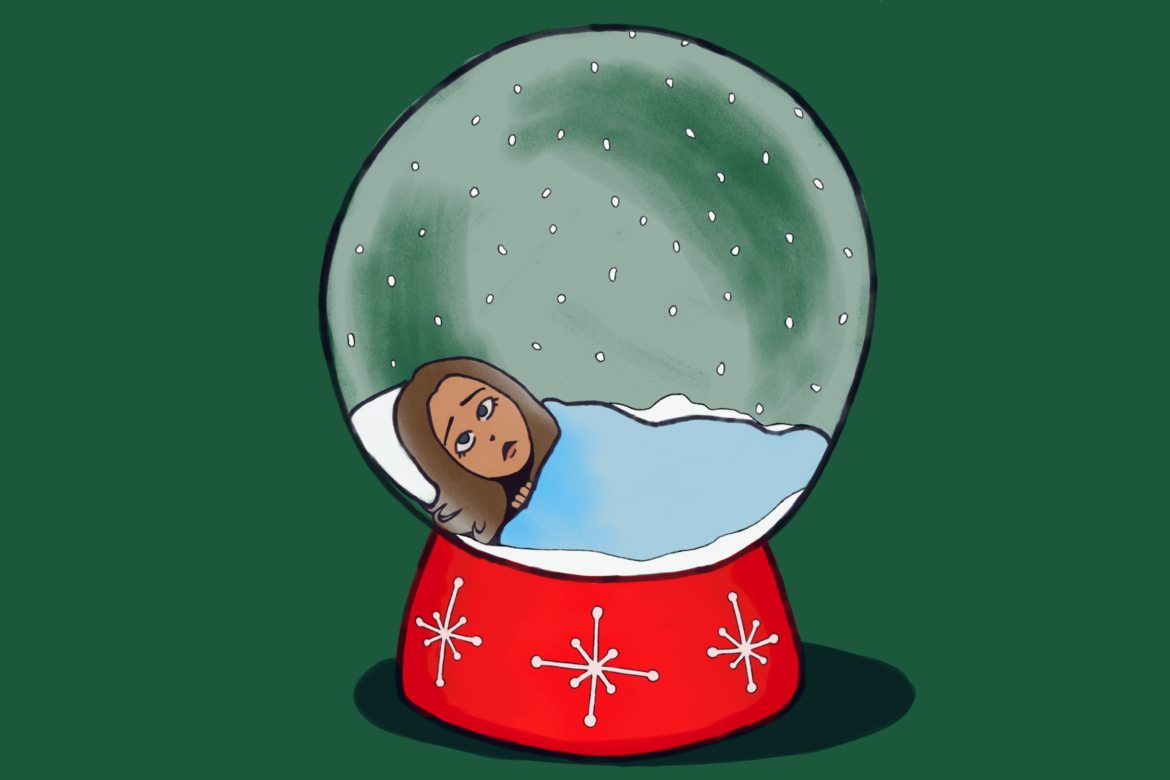Every year, it seems that winter break becomes a bigger and bigger relief for young adults.
There is the growing anxiety about what our near-futures hold with our jobs and social life.
Then there is also worldly stress about policies and powers that may wholly change certain things in our lifetime. Those with loved ones in dire situations, whether from natural disasters or countries in conflict, have felt it for a while now: “anticipatory anxiety,” or stressing over that which extends beyond our reign of control.
Looking around, everyone seems to experience a tug-of-war with their energy between tending to their personal trajectory and to those of the people around them.
We know that it is impossible to make everything a priority so we should avoid acting as if it is. Yet choosing to focus on one or the other at any given moment can create guilt that compounds itself with responsibilities and deadlines.
Writing us off as lazy or complaining are bygone scapegoats. They also do not offer explanations for the sensation we have of combating against unworkable odds.
In short, no, it is not our imagination that our generation is more stressed than previous ones. A study from Global Scan, a management consultant and signatory to the U.N. for 20 years, found that Gen Z was the highest-stressing generation as of 2023. Changing facets of life have contributed to this, including accessibility to financial services and health care outlooks.
And yes, there is no arguing that the past few elections have added to that elevated level of stress, the most recent one bestowing us with a fresh batch just before we ring in the new year. It may be only recently that we find ourselves able to reconcile with it, if only for the sake of maintaining some semblance of respect at holiday tables.
Shortly after the election, articles and op-eds were churned out about maintaining conversations and realizing that there is a lot we agree on.
Reassurances take many forms, including statistics, such as one that states that “Republicans, Democrats and independents agreed that the country’s system of checks and balances isn’t working (76% of Republicans, 71% of Democrats and 74% of independents).” An October poll by the American Psychological Association found they also agreed that politicians aren’t talking about the things that are most important to them (62%, 58% and 60%, respectively).
Such information does not offer a solution to get American politics “back on track” to answering important matters nor does it tell us how to deal with this on an interpersonal level.
What it does is confirm we can improve things within our close circles and across large communities. Or at least that we cannot make things worse. Call it “realistic optimism” if you will.
In light of pursuing this optimism, what organizations like our university can do is to proactively foster it.
We as students know the reinforcements we would benefit from: widely-advertised health services, professors who are conscious of students’ circumstances and various outlets to process our experiences.
Above all, what we need is compassion to have a seat at the table of authority and decision-making.
It is not necessarily a “soft skill” that goes into making a sensitive person. A working competency to facilitate discussion toward problem-solving is what it truly is. It is also something that demonstrates welfare and empathy in a harmonious way.
In wrapping up 2024 with our message about empathy, we turn the conversation to reflection and ask ourselves the same thing.
We can and should show ourselves empathy for all we have been through and encourage one another to do the same. Having a stable, manageable year is the biggest gift us and everyone in the world could ask for. While we cannot anticipate how and if that is going to happen, the best way to move forward is to practice empathy.
Winter break gives us a chance to slow down, a moment later we can end up crashing out from going into overdrive to achieve last-minute responsibilities. Recuperating from all this looks different for each person but enacting empathy is the one thing everyone’s recovery should have.
Doing so just may be the calm after the storm we’ve all needed.



